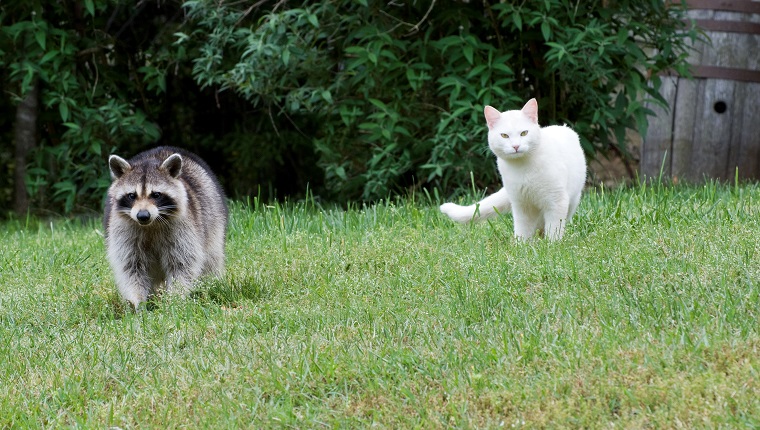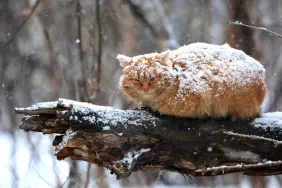When you adopt a cat, you take on the responsibility of being their guardian. That’s something you definitely need to be on top of, especially if you grant your cat outdoor privileges where they might come into contact with other animals.
Even indoor cats might get outside on accident from time to time. It’s important to be aware of the dangers your kitty could face, even if you don’t intend to let them roam.
Here’s a list of the ten creatures most likely to attack pet cats.
Are wild animal attacks on pets common where you live? How do you keep your cat safe? Let us know in the comments below!
Wild Animals That Attack Cats
-
Coyotes

(Picture Credit: Davis Huber / 500px / Getty Images)
Coyotes can be deadly, and they're especially known for killing domestic dogs and cats. Worse still, coyotes live all over North America, often hiding out in parks and areas with tree or bush coverage -- even cemeteries.
To safeguard your cat from coyotes, make sure they stay indoors during the night, and ensure your garbage cans are shut tight so those discarded morsels of food don't attract coyotes. Also, don't leave pet food outside, as this is highly attractive to wildlife.
-
Snakes
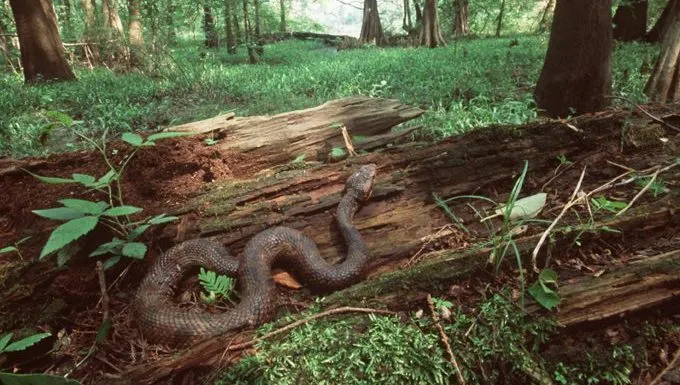
(Picture Credit: Getty Images)
If you hop on YouTube, you'll find many videos of cats seeming to tackle and defeat snakes. But these slippery creatures are a real threat to your domestic kitty.
Venomous snakes, including water moccasins and copperheads, can be found in abundance all over North America.
If you suspect that a snake has bitten your cat, you'll want to speed straight off to your local vet.
-
Cougars

(Picture Credit: Marcia Straub / Getty Images)
If you live in the west or the southwest of America, you and your cat need to be on the lookout for cougars -- often also referred to as mountain lions. They also appear in rural Florida.
Normally, a cougar will target livestock for a snack, but if a domestic cat comes on the radar, they'll happily switch up their menu.
While rare, attacks on humans have been reported, as well. If you spot this big cat near your house, call animal control or even the police as soon as possible.
-
Raccoons
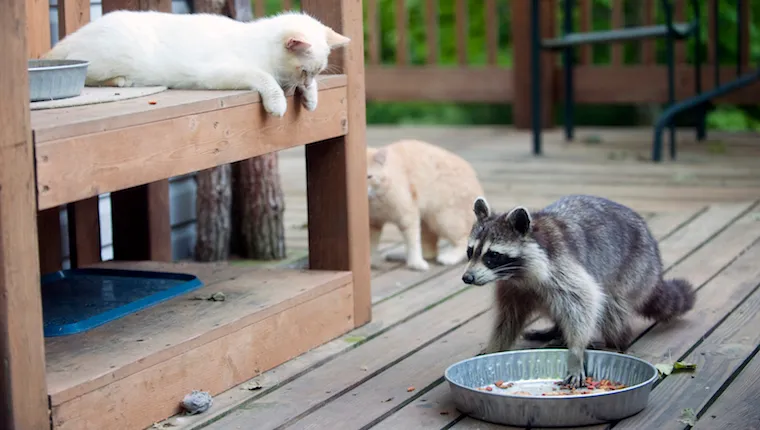
(Picture Credit: EEI_Tony Getty Images)
Raccoons can be found all over the country. While they're not the most feisty or aggressive of creatures, if your feline gets into a scuffle with a raccoon, you need to watch out for the danger of communicable diseases, including rabies.
Take steps to keep raccoons away from your property by never leaving cat food outside and keeping garbage and recycling cans securely closed.
-
Squirrels
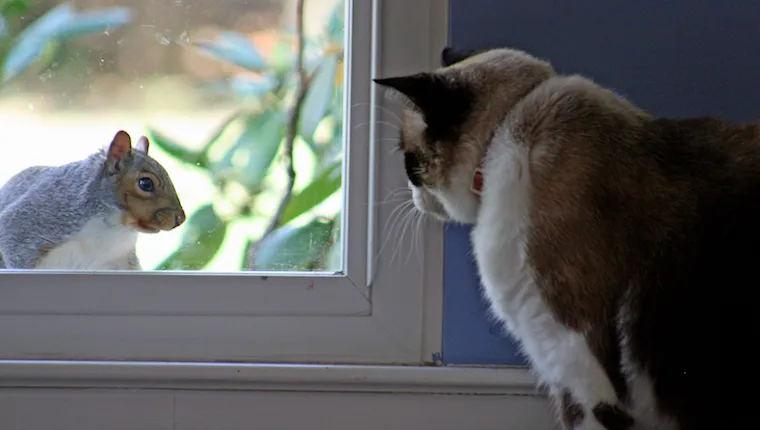
(Picture Credit: Nikki O'Keefe Images / Getty Images)
You might have noticed your cat looking longingly at squirrels, and given the opportunity, kitty might attempt to catch one.
Bad move! Your feline might win the battle, but a squirrel's sharpened claws and teeth can still inflict injury on your kitty.
Squirrels can also carry ringworm and spread diseases, as well as fleas and ticks. Best to let your cat appreciate them from afar.
-
Scorpions
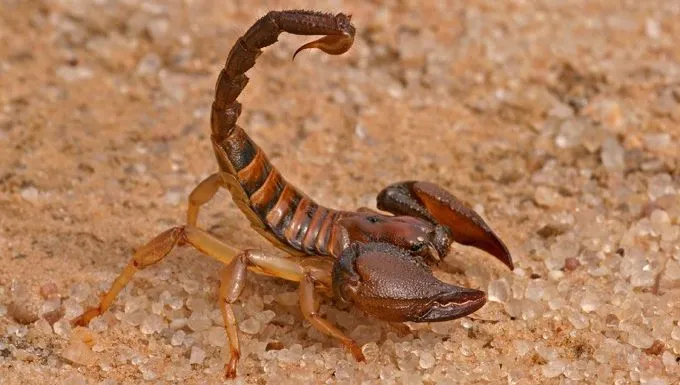
(Picture Credit: Getty Images)
Scorpions are found in the southwest and can pose a dangerous threat to both you and your cat.
If you notice your fearless feline stalking something that you can't make out, take a closer look and make sure a scorpion isn't the object of their attention because the scorpion's venom can often prove to be deadly.
Whisk your cat to the vet if they appear to be limping or in a sickly state after an outdoor session.
Pro tip: Don't leave your sneakers or clothing lying around outside, as scorpions have been known to hang out inside them.
-
Porcupines

(Picture Credit: BSIP/UIG via Getty Images)
A porcupine isn't necessarily going to go all out and attack your cat, but the rodent's loose quills can become embedded in your feline. They're found all over the United States.
Porcupines are attracted to salt, including sweaty clothes that you might have removed and left outside.
The process to remove the quills at the vet can take hours and is not exactly a breeze. They can cause serious damage. Keep your kitty away from these animals.
-
Skunks
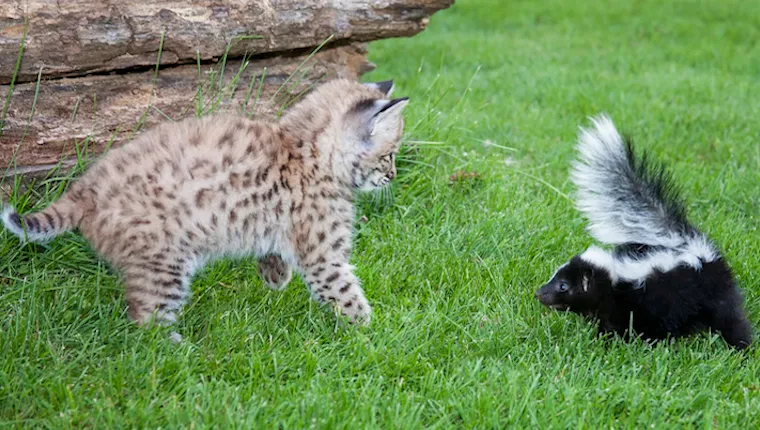
(Picture Credit: Lynn_Bystrom / Getty Images)
You can guess what happens if your cat has a run in with a skunk. Yep, you'll have one exceptionally pungent feline stinking up the house.
Worse yet, skunks have sharp claws that can be used in a showdown, and they can also carry rabies. So, basically, avoid skunks and anything that smells like a skunk at all costs.
-
Groundhogs
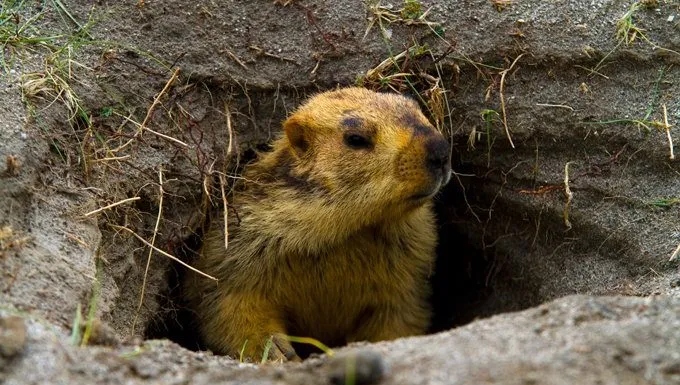
(Picture Credit: Getty Images)
If your cat has access to grounds where a forest and a field meet, there's a higher change they'll encounter a groundhog.
While these animals aren't likely to go out of their way to attack a cat, their sharp teeth and claws can do damage. As ever, prevention is the best way to stop groundhog attacks, so stay vigilant while your kitty is outside.
-
Rats
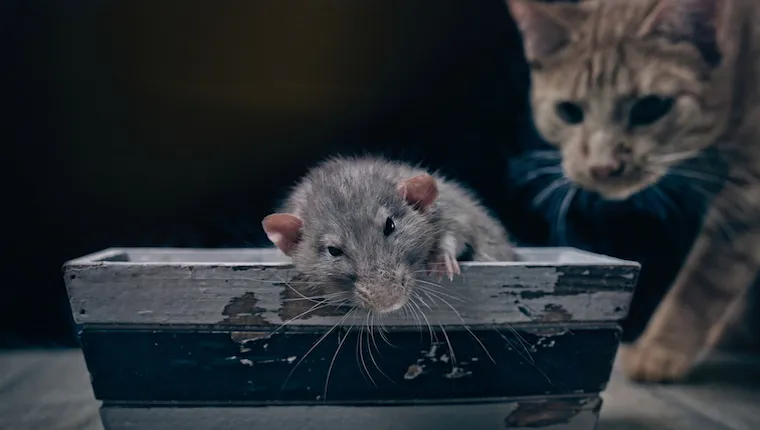
(Picture Credit: Thorsten Nilson / EyeEm / Getty Images)
Wild rats are everywhere. They're hardy, intelligent, aggressive, and comfortably at home in rural and urban environments.
You might be pretty confident that your cat will emerge as the victor in any skirmish with a rat, but that doesn't mean they'll be immune from picking up diseases.
Maintain a clean garbage area to minimize the likelihood of any rat and cat interactions.
